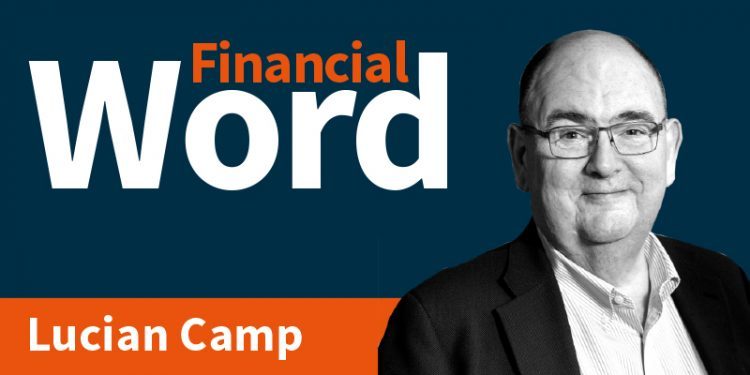Lucian Camp explores if a certain ad campaign is on borrowed time. Up till now at least, everyone is loving Aleksandr the meerkat. A littlewhile ago, he achieved the ultimate accolade, being invited to make a presentation about himself and his achievements at the most recent Financial Services Forum conference. (He even attracted a swarm of paparazzi).
Some people, including me, worry more than somewhat about Aleksandr’s shelf-life. As celeb-circuit success stories go, will he be a longerlasting Leona Lewis, so to speak, or a here-today-gone-tomorrow Steve Brookstein? (Who? Well, yes, exactly.) On the evidence of the ‘Jacuzzi’ commercial, on air at the time of writing, I wouldn’t be completely astonished to see the furry little Russian fella dropped by his label sooner rather than later.
But that’s not really what I want to write about. I come to praise Aleksandr, not to help bury him, and in particular to comment on a quote that emerged recently from the campaign. It’s not from the comparison-crazy rodent himself, but rather from the man responsible for his existence, comparethemarket.com’s Head of Marketing Mark Vile. In a recent interview, he unburdened himself of this illuminating observation: “We realised there was an opportunity for us to be the one price comparison site that had engaging and entertaining adverts.”
Well, no shit, Sherlock, as they say. Someone should tell Mark that in this business they’re ads or advertisements, never adverts: but apart from that, you’ll never read a less debatable remark. It’s almost impossible to imagine anything less engaging or entertaining than the blandness of Moneysupermarket.com, the dullness of Confused.com, or the cheap-and nastiness of Go Compare.
But the really intriguing possibility raised by Mark’s strategic observation – or at least, by it combined with the figures highlighting his campaign’s extraordinary success – is that maybe comparethemarket’s experience actually provides some compelling evidence that engaging and entertaining ads work better than bland, dull or cheap and nasty ones (or EAEAWBTDOCANO for short).
People from creative backgrounds like me, of course, believe this as a matter of faith. It seems obvious to us a) that if advertising isn’t engaging and entertaining in the first place then we’re less likely to pay any attention to it, and also somewhat contradictorily b) that if we do somehow find ourselves noticing a horrible unengaging and unentertaining campaign then we’re unlikely to want to associate ourselves with it in any way, least of all by buying whatever it’s advertising. I love cars and I love driving, for example, but I would give it all up rather than insure with a direct insurance brand with ghastly
cheap tacky advertising like Admiral or Elephant.
The trouble is that people from creative backgrounds do faith, but we don’t really do quantitative evidence for conceptual arguments. Although we firmly believe that EAEAWBTBDOCANO, we’re completely unable to prove it.
Which is where Mark Vile comes in (for obvious pot-kettle reasons, I’m staying well away from any surname jokes). What he was getting at was that, in the experience of comparethemarket.com, he can demonstrate that engaging advertising works better. And, although the evidence is a couple of years old now, I think we can demonstrate the same at my agency from our experience with the direct insurance brand MORE TH>N, back in the era of Lucky the dog.
Do two swallows make a summer? I suppose what I have to understand is that there are renegade swallows flying around, to be counted on the other side of the argument too. No doubt Admiral have some sort of evidence that their cheap and nasty advertising works better than the engaging and entertaining variety, although I struggle to imagine what this evidence can be like.
Far beyond financial services, some of the very biggest proponents of dreary and repellent advertising have undergone Damascene conversions: I’m thinking about Mars and Procter & Gamble, both of whom, despite occasional distressing lapses, are generally entertaining and engaging us to a degree unimaginable to the poor sods responsible for writing their wretchedly formula-driven ads a generation ago (eg. me).
For the time being, in the world of financial services, there are still far too many advertisers – including many of the bigger ones – still sitting on the fence: not wanting anything to do with the full-on Admiralesque hidebehind-the-sofa tendency, but not quite mustering the courage to go full out for engagement and entertainment. It’s been this way for many years, and I’d be a liar if I said that I could see much movement, in either direction.
But maybe Mark and his magnificent meerkat will give us all a significant shove in the right direction.
Dear old Oscar, who could have been the greatest creative director in the history of advertising, really was right that the only thing worse than being talked about is not being talked about. Just by being talked about, comparethemarket.com have got three, four, five, 20 times more bang for their advertising buck than the average financial advertiser. And even if, as I fear, Aleksandr’s sellby has come around a bit quicker than Mr Vile might have liked, there’s an obvious lesson in that for the rest of us. Simples.

